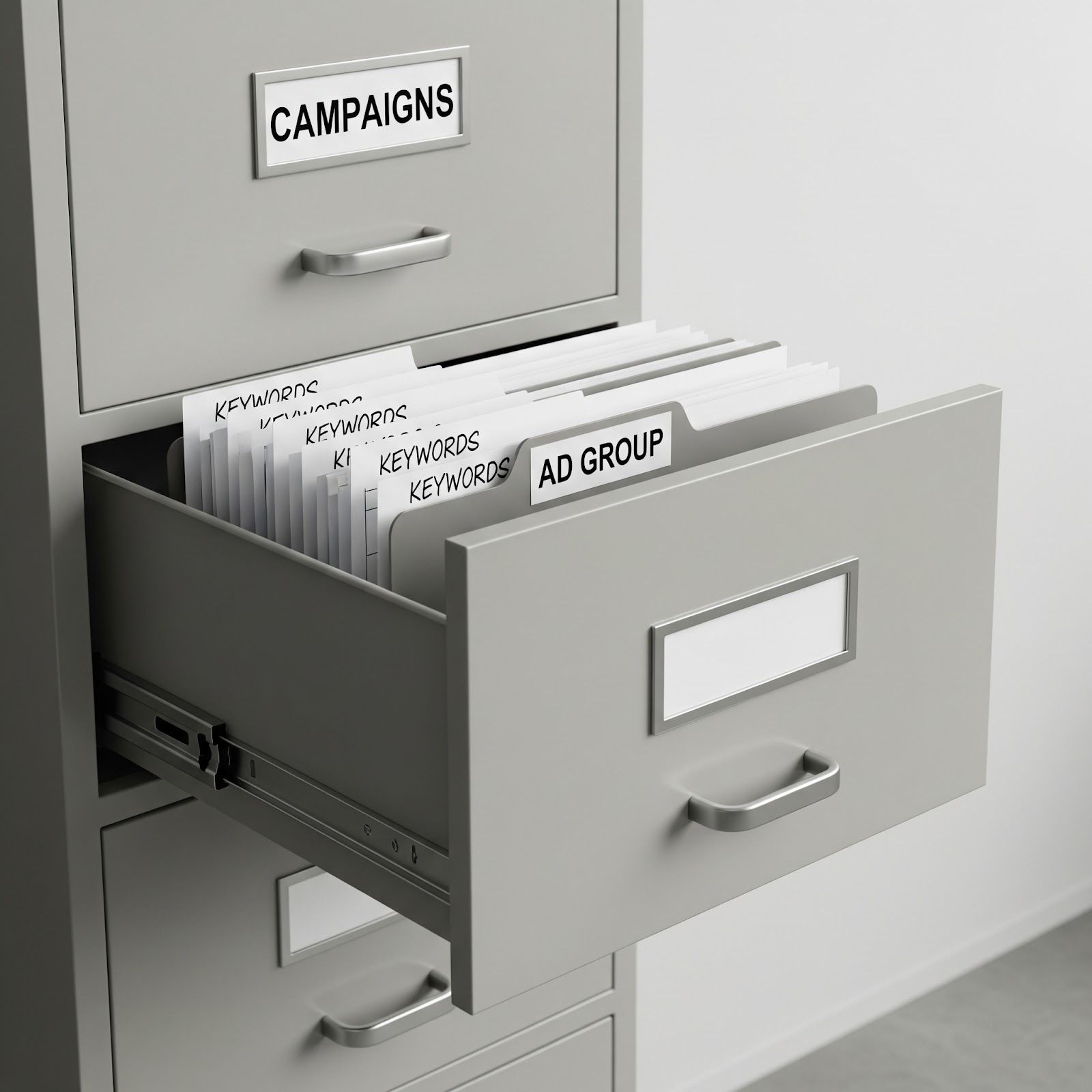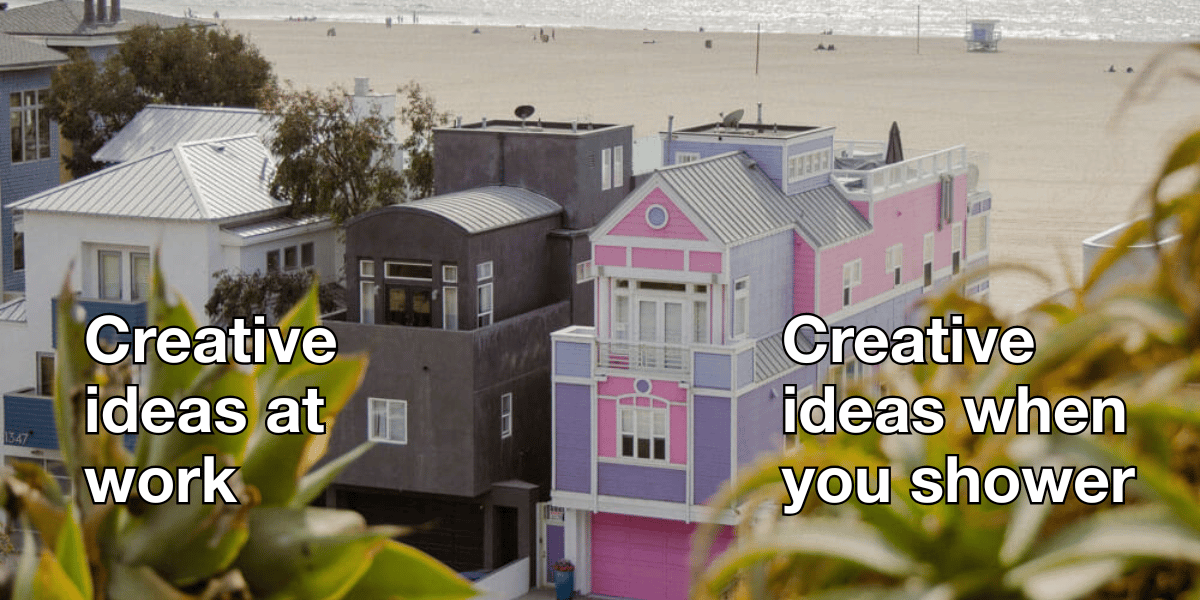- Brand Breakthroughs by Digital Femboy Promotions
- Posts
- How We Make Local Google Ads Make Sense (Local Ads Series)
How We Make Local Google Ads Make Sense (Local Ads Series)
Stop being overwhelmed. We'll break down the core mechanics in a simple, easy-to-understand way. (Plus this week’s campaigns!)
What a Gutter Upgrade Actually Costs
We studied what roofers are saying about gutter guard prices in 2025… and here’s what we found out.
Finding the best price comes down to just two simple things:
Cut out the middleman and buy from the manufacturer to save big money.
Get guards that install over your existing gutters - no need to replace anything so you’ll save a fortune.
With a little help, you can find the best gutter guards at a great price.
Check out this no-cost website where you can ‘skip’ the middleman and get (fair) local pricing.
Just hit the link below, and complete a 1-minute survey to get started on finding the perfect gutter guards for your home.
Hi hi everyone! No, you’re not hallucinating, it’s us! On a Monday!
(Keep an eye out for us Mondays with special subscriber-only content twice a month on Fridays – learn more about the new offerings here.)
While away I had the opportunity to interact with folks from Greece and take some lessons back with me…
…Specifically about the work life balance we promote and create for ourselves.
With that said, working smarter not harder has always been a core tenet.
(But we tend to fill in that time we save with other tasks and meaningless check-ins.)
Now we’re going to bring that into the front and center with this month’s topic: local ads.
Local ads are more for small audiences (“locals”) within a few miles of your business address or service area, for you we recommend using Google for these before spearheading into Facebook or other social ads.
Local Google campaigns’re a lot easier to run (and see results from) when compared to regional, national, or global campaigns.
How Ads Really Work
Imagine there's a big empty billboard on the side of the road, and lots of different stores want to put their ad on it. But there's only one spot!
Google Ads is like the person in charge of that billboard (the Lennar, if you will).
When someone searches for something on Google, like "labubu store near me," Google has to decide which ad gets shown.
Top Publishers Hand-Selecting Amazon Brands to Promote this Holiday Season
This holiday season, top publishers are handpicking Amazon brands to feature in gift guides, newsletters, and reviews — driving high-intent shoppers straight to storefronts.
Levanta is connecting a select group of 7–9 figure brands with publishers ready to promote products to millions of buyers.
First off, it's not just about money
You might think the store that pays the most gets the spot. Not always! Google wants to show the best ad to the person searching.
What ad gets shown?
Two main things matter to the big G:
How much you're willing to pay (your "bid"): This is like how much you’re willing to offer for the billboard spot. (This is an average bid, some clicks cost more or less than this number.)
How good your ad is (its "Quality Score"): Google checks if your ad is helpful, if the website it sends people to is good, and if it's really about what the person searched for. A good ad means people are more likely to click it and find what they're looking for.
Google takes your bid and your Quality Score and gives your ad a "rank." The ads with the highest ranks get shown more frequently.
Budgeting: You pay less than you think
Even if you bid a lot, you usually only pay just enough to beat the ad below you. So if the next best ad was going to pay $1, you might only pay $1.05 (even if your bid is set to $1.50).
So, in short: Google wants to show helpful ads, and it chooses them based on how much advertisers are willing to pay and how good and relevant their ads are.
Keywords: The sauce behind ad targeting
Unlike SEO, the types of keywords are different for ads. There’s 3 main types of keywords you can use to tell Google when to show your ad.
Broad Match
This is like telling Google, "Show my ad for anything that's kinda related to my keyword."
If your keyword is "shoe store," your ad might show on searches like "sneakers near me," "where to buy boots," or even "footwear sales."
It gets you a lot of eyeballs…but some might not be looking for exactly what you offer.
As marketing professionals we use this for brand awareness mainly to build your “buy later” crowd.
Phrase Match
Phrase matched keywords are a bit more specific but not as specific as exact phrase matches.
It's like saying, "Show my ad if someone searches for my exact keyword phrase, or something very similar."
So if your keyword is "dog grooming," your ad might show when searchers punch in "dog grooming services," "best dog grooming in town," but not for "grooming cats" or "dog walking."
For marketing purposes we’re using this to discover new exact match phrases (and negative phrases).
Exact Match
This is the most precise. It's like saying, "Only show my ad if someone searches for my exact keyword, or a very close variation of it."
If your keyword is "family therapy," your ad will only show for "family therapist," "therapist for families," or very close misspellings.
You get fewer impressions, but the people who see your ad are usually looking for exactly what you offer.
Negative Keywords: What you DON'T want
Negative keywords are super important because they tell Google when not to show your ad.
Think of them as a "do not disturb" sign.
If you sell high-end "leather couches" and don't want to show up for people looking for "cheap leather couches," you'd add "cheap" as a negative keyword.
This saves you money by preventing your ad from showing to people who aren't your target audience and likely won’t be purchasing from you.
Marketing ideas for marketers who hate boring
The best marketing ideas come from marketers who live it. That’s what The Marketing Millennials delivers: real insights, fresh takes, and no fluff. Written by Daniel Murray, a marketer who knows what works, this newsletter cuts through the noise so you can stop guessing and start winning. Subscribe and level up your marketing game.
Keeping Things Tidy: Structuring your ad account
So, imagine your Google Ads account is like a giant filing cabinet for all your advertisements.
To keep it tidy and effective, you need a good system (unless you LIKE having your broker on your ass).
Campaigns (The Big Drawers)
Campaigns are your main categories. Depending on your market and whatnot you might have some campaigns like:
Homes for Sale - City Name (e.g., "Homes for Sale - Las Vegas")
Condos for Sale - Specific Neighborhood (e.g., "Condos for Sale - Summerlin")
Luxury Homes - City Name (e.g., "Luxury Homes - Henderson")
Selling Your Home - City Name (e.g., "Selling Your Home - Enterprise")
Ad Groups (Folders within the Drawers)
Inside each "drawer" (Campaign), you'll have "folders" (Ad Groups) for more specific topics. These folders contain ads and keywords that are very closely related.
Inside the "Homes for Sale - Las Vegas" Campaign, you could break it down into:
Las Vegas Single Family Homes
Las Vegas Homes with Pools
Las Vegas New Construction Homes
Keywords (Papers in the Folders)
These are the exact words or phrases people type into Google. You put the most relevant keywords into each Ad Group.
Inside your "Las Vegas Single Family Homes" Ad Group, some Keywords might be:
single family homes Las Vegas
Las Vegas houses for sale
buy a house in Las Vegas
This way, when someone searches for "Las Vegas new construction homes," Google knows exactly which campaign, ad group, and specific ads are most relevant, making your ads more likely to show up (and get clicked by the right people).
It keeps everything organized and helps Google understand what your ads are truly about so the suggestion engines work properly.
Here’s a simple visual for ya:

A filing cabinet illustrating the structure of a well-organized ad account with campaigns as large drawers, ad groups as folders, and keywords as papers within the folder.
One thing to keep in mind is that your ads only do the “foot in the door” stuff. You’ve still got to work your leads and keep your pipeline flowing.
(Email marketing perhaps? Hint hint!!!!)
As always, we’ll see you next week (Monday remember!) for another exciting edition of Brand Breakthroughs.
Toodles!
LJ & Fahad
What’s Next?
The anatomy of a local ad
Hyper-local copy
Leveraging ad extensions
Retail/E-Commerce
Concept: Give your audience a peek into your creative inspiration. This could be a reel showing your mood board, a collection of objects that spark your ideas, or a quick tour of a place in Las Vegas that influences your design choices. You can talk about what motivates you and the vision you have for the products you create or curate.
Why it works: You're inviting customers into your world and showing them the passion and personal story behind your brand. This creates an emotional connection, making your products more meaningful than just an item on a shelf.
Consultants/Coaches
Concept: Share a personal story about a major lesson you learned in your own career that changed your perspective and how you approach your work. This could be about a mistake you made or a challenge you overcame that now informs your coaching philosophy.
Why it works: You're building your brand on a foundation of humility and wisdom. By sharing a personal learning moment, you show that you're a real person who has been in their shoes, making you a more trustworthy and empathetic guide for their own journey.
Realtors
Concept: Share a reel where you reflect on a specific property you've sold—not just the features of the house, but the story behind the clients and why helping them find that particular home was so rewarding for you. You can show a quick picture of the house from a distance (without revealing personal details, blur faces and license plates) and talk about the emotions and connections involved.
Why it works: You're building your brand around empathy and personal investment. By sharing a story, you show that you see your clients as more than a transaction and that you find genuine joy in helping people achieve their dreams.
Therapists
Concept: Create a reel demonstrating a particular mental wellness tool or technique that you personally find effective. This could be a grounding exercise you do before a session, a journaling prompt you use to reflect, or a quick meditation that brings you peace. You can share why it's a go-to for you and how it helps you stay centered.
Why it works: You're building trust by being a real, relatable person who also navigates the demands of life. Showing that you use the same tools you recommend makes your advice more authentic and inspiring.
Photo by Hen Kaznelson on Unsplash




Reply